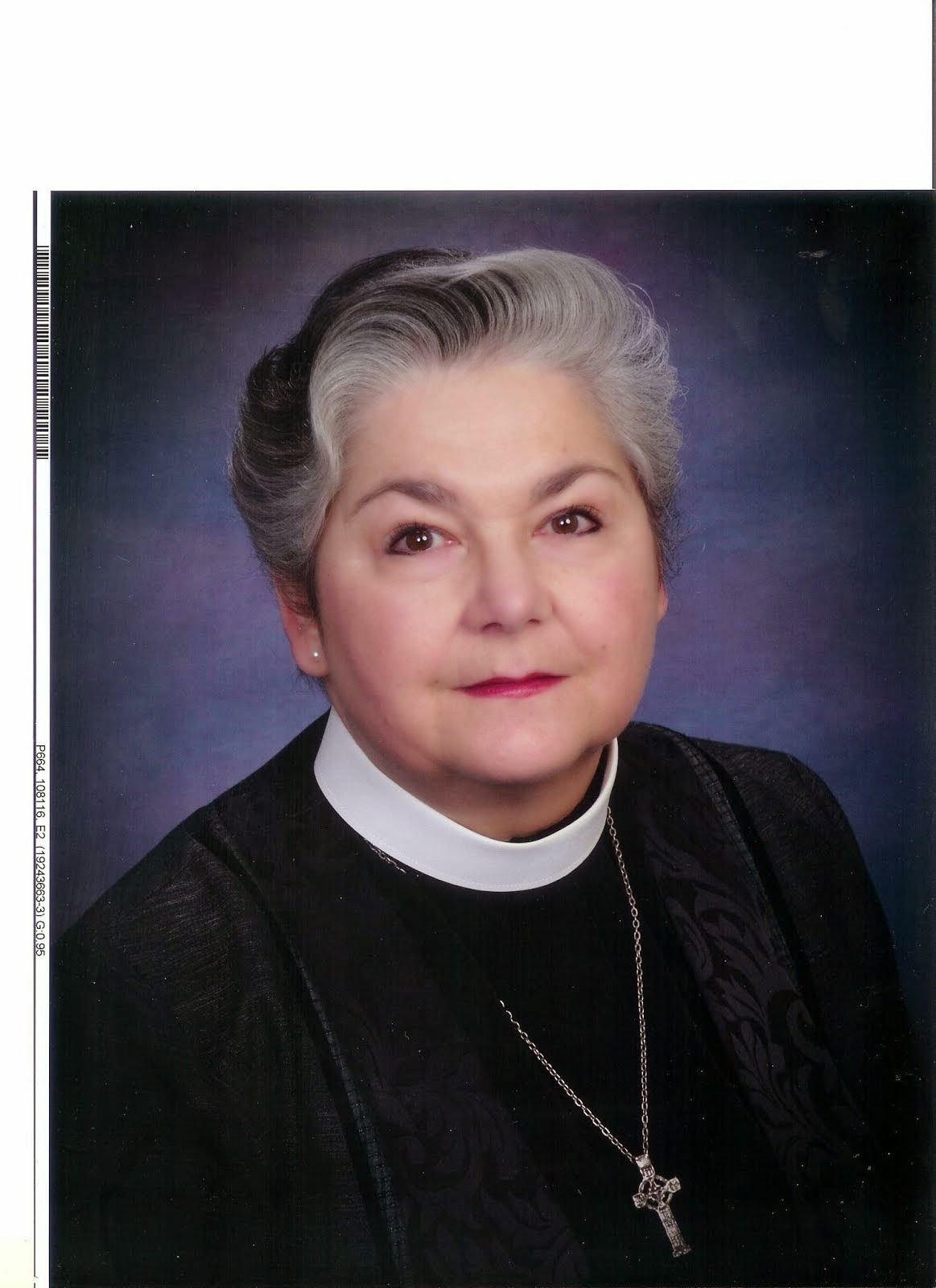The canticle we recited in place of the psalm this morning is the Magnificat. It is Mary’s song of praise – she spoke it to her cousin Elizabeth on a visit to the older woman, also pregnant with an unexpected child, when Elizabeth – shocked by what she was realizing – cried out: ‘Blessed are you among women, and blessed is the fruit of your womb. And why has this happened to me, that the mother of my Lord comes to me? For as soon as I heard the sound of your greeting, the child in my womb leapt for joy. And blessed is she who believed that there would be a fulfillment of what was spoken to her by the Lord.’
Such a scandalous and astounding event in the lives of these two women! Elizabeth, too old to be pregnant, and yet she is. Mary, who did not have relations with any man, impossible to have become pregnant, and yet she is. Too hard for any human being to understand, certainly. And yet these two women understand it, accept it, rejoice in it. They sense their unique roles in God’s majestic drama, and settle into them as a dog circles itself into its warm blanket in front of the fire.
We wonder at that, because what they were asked to do by God, and in particular what Mary was asked to do, is so opposite from the expectations of how a modest village girl would live. Mary was a good girl, and like all good girls of her time, she expected that she would get married to a nice man and raise a family. She would have children, hopefully many of them, and she would sing the prayer at the Sabbath table. She would be supportive of her husband in his work. She would live out her life as her mother had lived hers, invisible, unknown, just a part of the fabric of village life, one little thread.
But what a golden thread, and how it shone out in contrast to the grays and browns around her!
Her destiny was quite different from the one she had thought. She was engaged to Joseph, yes, but something strange and marvelous had happened – she was pregnant…and not by Joseph. Pregnancy before formal vows was not uncommon in that time, because it was the betrothal that carried the legal and religious weight in that culture, and the actual marriage was simply a party completing the transaction. The pregnancy itself was not the problem.
This was a rather unusual pregnancy. Joseph was not the father. That would be cause for him to shame her, to dissolve the betrothal and send her away, and Joseph thought about that – we will hear more about Joseph’s story in next week’s gospel – but an angel told him what was really going on. It was something that he could not have imagined – that Mary was carrying God’s own Son.
For that matter, Mary had struggled to imagine it as well when the angel had come to tell her what God had in mind. Somehow, though, she found the path to acceptance of her role in God’s work. And so, when she sings this Magnificat, it is all the more remarkable how she revels in this role:
“My soul glorifies the Lord and my spirit rejoices in God my Savior,
for he has been mindful of the humble state of his servant.
From now on all generations will call me blessed,
for the Mighty One has done great things for me—holy is his name.”
Just a humble village girl. Probably no schooling except in memorizing Scripture and how to bake a good loaf of bread. But she composed this golden song in response to her cousin’s recognition of what was going on, Mary’s destiny, Elizabeth’s destiny, intertwined in God’s plan. Mary knew her child was no ordinary child. Elizabeth recognized it, too.
And once she spoke those first words of this song, the words that followed were even more shattering to the way things are supposed to be:
“He has cast down the mighty from their thrones, and has lifted up the lowly.
He has filled the hungry with good things, and the rich he has sent away empty.
He has come to the help of his servant Israel, for he has remembered his promise of mercy.”
The Magnificat’s message… so subversive that for a period during the 1980s the government of Guatemala banned its public recitation. A teenaged girl, in a small village in the Middle East, predicting the toppling of the powerful, the redemption of those who are oppressed.
Mary knew what she was saying.
Mary knew.
God, with his powerful ability to remind us that the divine way is very different from the human way, took this woman with no power, no education, no status, no money. God gave her the gift of this responsibility, carrying God’s only son, and God gave her the words to sing out what this meant: the old rules are broken. The powerful are brought low. The weak and downtrodden are redeemed.
And she sang all this because of an angel’s whisper: “You have found favor with God. And you will conceive and bear a son… The Holy Spirit will come upon you, and the power of the Most High will overshadow you; therefore the child to be born will be holy; he will be called Son of God.”
Is Mary the only one to whom the angels whisper God’s plan? Can it be possible that God sends these messengers to whisper to us as well? Without a doubt!
When we are given those angel’s whispers, telling us what God has in mind for us, can we listen with open hearts? Can we believe that we, even we in all our imperfections, can be the servants of God?
If a simple village girl who thought she would simply be another brown or gray thread in the tapestry of village life could be transformed into something golden, something powerful, something critically important to what God has in mind, can we not believe that we, too, have the possibility of being something more than we think we are?
God did not create us to have us sit around in a shadowy fog. God created us to do the divine will in surprising ways.
Listen for the angel. Listen for the whispers. Hear what God, full of love for us, has planned. Then sing out, rejoicing.
Amen.







No comments:
Post a Comment